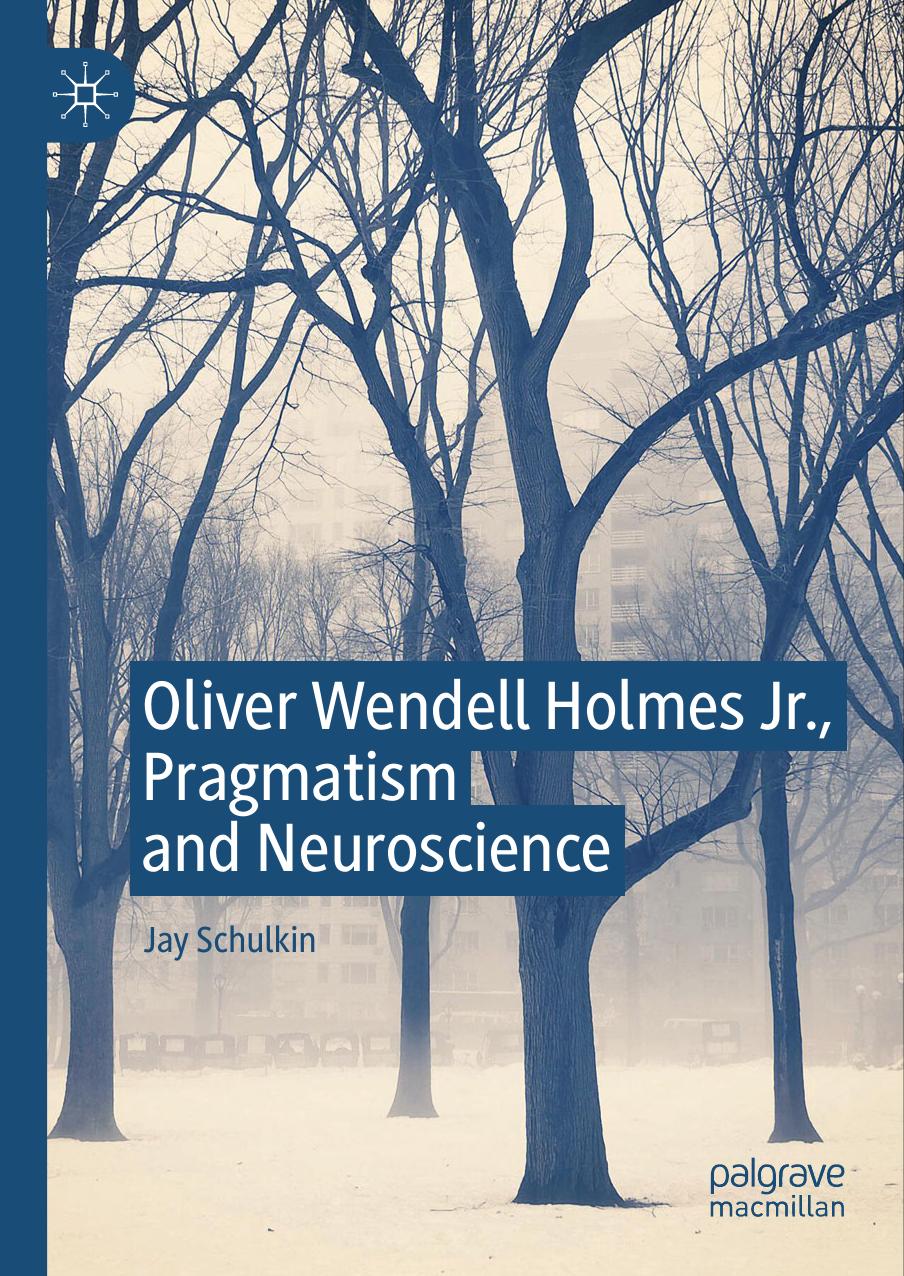Oliver Wendell Holmes Jr., Pragmatism and Neuroscience by Jay Schulkin

Author:Jay Schulkin
Language: eng
Format: epub, pdf
ISBN: 9783030231002
Publisher: Springer International Publishing
8. Naturalizing Decision Making: Heuristics and Concerns
Jay Schulkin1
(1)Department of Neuroscience, Georgetown University, Washington, DC, USA
Jay Schulkin
Email: [email protected]
The naturalization of reasoning looks at diverse forms of capabilities and certainly to the dissolution of diverse forms of dualism, so endemic to diverse pragmatists, including Holmes. For Dewey (1910, 1925), there is no separation between cultural capability and our biological inclinations; the empiricism is in structuring the best sort of outcome. Dewey perhaps was naïve and over exaggerated the relationship between neural engineering and cultural moral expression. But the training and the means for those ends is part of the continuing evolving perspective in the progressive agenda, Holmes’s agenda. Holmes was less optimistic than Dewey.
Holmes noted in Science of the Common Law that law “is forever adapting new principles from life at one end and it always retains old ones from history at the other… It will come entirely consistent only when it ceases to grow.” Holmes sounds almost like Dewey here with the organic growth and decay conception of law, growth, and human action, which is why he would see in the expression of what he thought important in a philosophy of nature within a cultural democratic milieu (Grey 1992).
Metaphors are not on one side and reason on the other. As I indicated at the outset of the book in the context of neuroscience, metaphor figures in our understanding. Metaphor is just a tool in reasoning and in doubt (Boyd 1993; Johnson 1993, 2007), solid but not frozen into eternity—hard fought through experience and won for its value in life—in getting along, in thriving, in sustaining the good things in our life and in the consideration of future generations.
Theory in law is hitting on roughly the right theory, the right heuristic, or roughly the right orientation; and this is empirical. Whatever is sort of good enough reasoning, generates the right heuristics (see below). While about heuristics, pragmatism is also about human interactions, determination of consequences. It is not anti-formalism, in the sense of formalism as analytic mathematics or logic.
The chapter starts with a sense of “good enough” reasoning—not mythologized perfect reason—heuristics, and anchoring realism about reason. These are familiar pragmatist themes. There is then consideration of Holmes’s anchoring legal reasoning to more general problem-solving capabilities to niche capability, assessment of prior probabilities and self-corrective inquiry and are at the basis for reasoning and a pragmatic sense for reasoning about law and neuroscience.
Download
Oliver Wendell Holmes Jr., Pragmatism and Neuroscience by Jay Schulkin.pdf
This site does not store any files on its server. We only index and link to content provided by other sites. Please contact the content providers to delete copyright contents if any and email us, we'll remove relevant links or contents immediately.
Getting to Maybe by Richard Michael Fischl(958)
Legal Forms for Starting & Running a Small Business by Fred S. Steingold(552)
Burtons Legal Thesaurus by William C. Burton(546)
The Joy by Paul Howard(454)
Rhetorical Perspectives on Argumentation by David Zarefsky(364)
Multimethod Research, Causal Mechanisms, and Case Studies by Goertz Gary(303)
Learning Legal Skills and Reasoning by Sharon Hanson(269)
101 Things I Learned® in Law School by Vibeke Norgaard Martin & Matthew Frederick(253)
Oliver Wendell Holmes Jr., Pragmatism and Neuroscience by Jay Schulkin(228)
The Fallacy of Corporate Moral Agency by David Rönnegard(210)
Argument Types and Fallacies in Legal Argumentation by Thomas Bustamante & Christian Dahlman(187)
Ethics and Policies for Cyber Operations by Mariarosaria Taddeo & Ludovica Glorioso(132)
